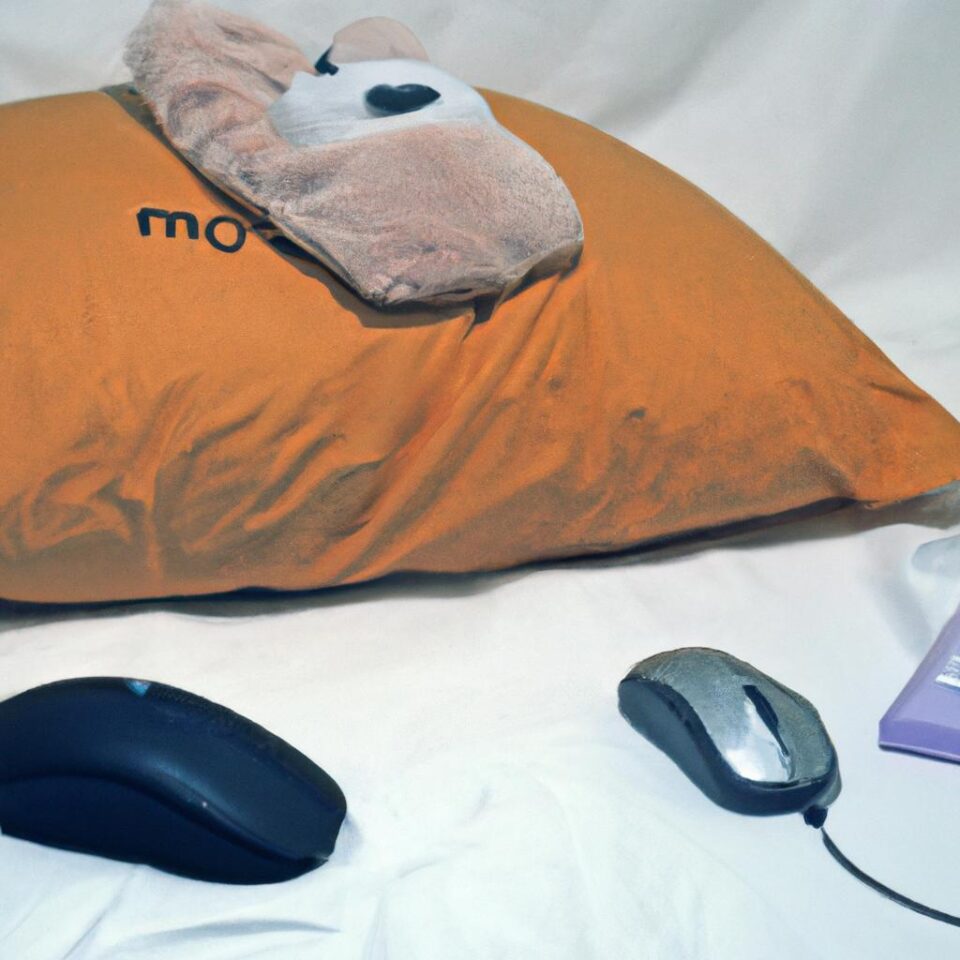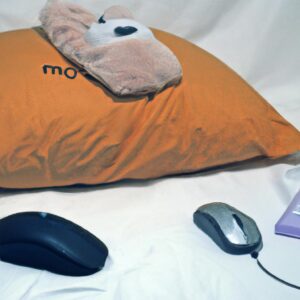Introduction: Technology and Sleep Hygiene
In our modern world, technology is everywhere, from the phones in our hands to the computers in our homes. It has become an integral part of our lives, facilitating communication, entertainment, and productivity. However, the impact of technology on sleep isn’t always positive. Technology use before bed can cause increased alertness and delay sleep onset. This can lead to chronic sleep problems, such as insomnia, sleep apnea, restless legs syndrome, and narcolepsy.
Sleep hygiene is a set of habits and practices that promote good sleep health. It involves avoiding blue light exposure after dark, setting a regular sleep schedule, and avoiding digital distractions. In this guide, we will discuss why technology can disrupt sleep and how to practice good sleep hygiene.
Overview of Sleep Disorders Linked to Technology Use
The use of technology can have a negative impact on sleep, leading to several types of sleep disorders. Common types of sleep disorders linked to technology use include sleep apnea, insomnia, restless legs syndrome and narcolepsy.
Sleep apnea is a disorder in which the individual experiences pauses in breathing during sleep. It can result from the interruption of natural pathways, such as blockages in the nose or throat. Insomnia is a disorder characterized by difficulty falling asleep and staying asleep. Restless leg syndrome is a neurological disorder characterized by a strong urge to move one’s legs, especially during rest or sleep.
Narcolepsy is a neurological disorder that causes sudden and uncontrollable bouts of strong drowsiness during the day. People with narcolepsy often have difficulty staying awake and concentrating during the day. All of these sleep disorders can have a profound effect on quality of life and may be caused, or exacerbated, by the overuse of technology.
Digital Distractions and Lifestyle Habits
Technology has become integrated into our daily lives, with many of us relying heavily on our devices to perform tasks or to stay connected with family and friends. While technology can certainly be beneficial in many ways, it can also contribute to sleep difficulties.
Late night device usage, such as phone browsing or gaming, can lead to reduced sleep quality and quantity due to the blue light emitted from screens. Additionally, consuming caffeine in the late afternoon or evening can make it difficult to fall asleep. Furthermore, sleeping during the day can interfere with the body’s natural circadian rhythm, which can result in difficulty falling asleep or staying asleep.
These poor lifestyle habits can lead to a range of sleep disorders, such as insomnia, restless legs syndrome, narcolepsy, and even sleep apnea. If left untreated, these disorders can have serious impacts on one’s overall health and well-being.
How to Combat Technology-Induced Sleep Issues
Technology can have a significant impact on sleep quality, with research showing that the use of phones and other electronic devices can lead to insomnia, restlessness, and even obstructive sleep apnea. If you’re looking for ways to improve your sleep hygiene, here are some tips that can help.
Firstly, it’s important to limit your screen time. Having a nightly device-free period can help reduce distractions and better prepare the body for rest. This could look like turning off screens an hour before bedtime or setting a daily device usage limit. Snooze notifications means the phone won’t be a distraction throughout the night.
Next, avoiding exposure to blue light in the evening is important for getting a good night sleep. Blue light tricks the body into thinking it’s still daytime, suppressing melatonin production and making it harder to fall asleep. Try not to use any digital devices after dark and install apps that can block blue light from electronic displays.
Finally, it’s a good idea to make sure you’re winding down before bedtime. This could look different for everyone – perhaps taking a warm bath, meditating, writing in a journal, or reading a book. Practicing these simple relaxation techniques can help your body and mind transition into a peaceful and relaxed state.
Impact of Melatonin Production on Sleep Hygiene
Melatonin is a hormone naturally released by the body that helps to regulate our sleep cycle. It is essential for proper and restful sleep, as well as overall health. The amount of melatonin produced in the body naturally decreases as we age, and this can lead to difficulty sleeping, as well as other sleep-related issues. Additionally, things like stress, poor dietary choices, environmental factors, and lack of exercise can all affect melatonin production and lead to poor sleep hygiene.
Fortunately, there are ways to improve melatonin production and improve your sleep hygiene. Here are some tips to help you do just that:
- Get regular, quality sleep – make sure to get at least seven to eight hours of undisturbed, quality sleep every night.
- Relax before bed – try to relax or meditate before bedtime to get your body and mind ready to sleep.
- Reduce stress – take steps to reduce stress in your life, such as taking part in activities that bring you joy and relaxation.
- Limit caffeine intake – try to avoid caffeine late in the day, as it can interfere with your ability to fall and stay asleep.
- Exercise regularly – regular physical activity can help to increase your body’s production of melatonin.
- Eat dark leafy greens – dark leafy greens like spinach have been shown to help increase melatonin production.
- Take melatonin supplements – if all else fails, you can try taking a melatonin supplement, available over the counter. However, it is best to consult with your doctor first.
By following these tips, you can improve your melatonin production and, in turn, improve your sleep hygiene. Remember, good sleep hygiene requires effort and commitment, but the rewards are worth it!
Sleep Trackers
Sleep trackers are devices or apps that can help you monitor your sleep patterns and sleep quality. They can provide helpful information about your sleeping habits, such as the average time it takes you to fall asleep, how often you wake up in the night, and the amount of deep sleep you get. Sleep trackers can also create a detailed “sleep plan” for you to follow, which can help improve your sleep hygiene by setting a regular sleep schedule.
There are a variety of sleep trackers available, ranging from basic sleep trackers to more sophisticated devices. Basic sleep trackers are small, wearable devices that track your sleep movements and other sleep data. These trackers can be attached to your body or placed under your mattress, depending on the model. Also, many phones now come with sleep tracker apps that track your sleep data.
For a more detailed analysis of your sleep patterns, you can opt for a more sophisticated sleep tracker device. These trackers use sensors to measure body temperature, heart rate, and breath rate. They also come with advanced features such as personalized sleep plans, sleep cycle alarms, and cloud-based data storage. These features can help you create a better sleep routine and improve your overall sleep hygiene.
Summary
To improve our sleep hygiene, we need to be aware of the impact of technology on our sleep. Technology can cause sleep disorders such as insomnia, sleep apnea, restless legs syndrome, and narcolepsy. Additionally, digital distractions can lead to poor sleep hygiene habits, such as using devices late at night, consuming excessive caffeine, and sleeping during the day. We can combat these issues by limiting screen time, avoiding blue light exposure after dark, and unwinding before bedtime. Melatonin production is closely related to sleep hygiene, as it helps us regulate our sleep-wake cycle and should be increased in order to improve sleep. Lastly, sleep trackers can be used to establish regular sleeping patterns and better understanding our sleep patterns. All these tips and insights will help us generate better sleep hygiene and a healthier lifestyle.
comments: 0

